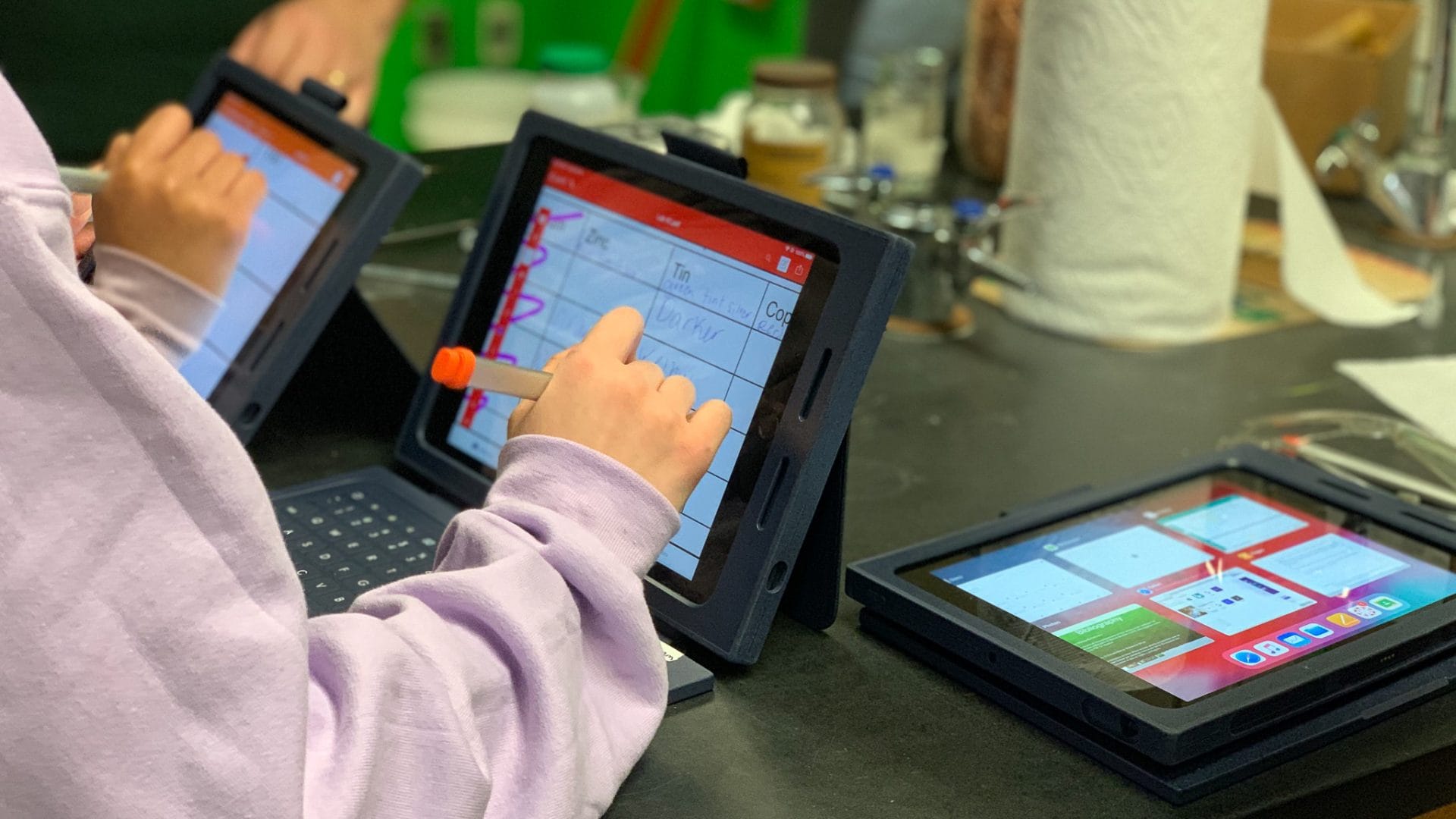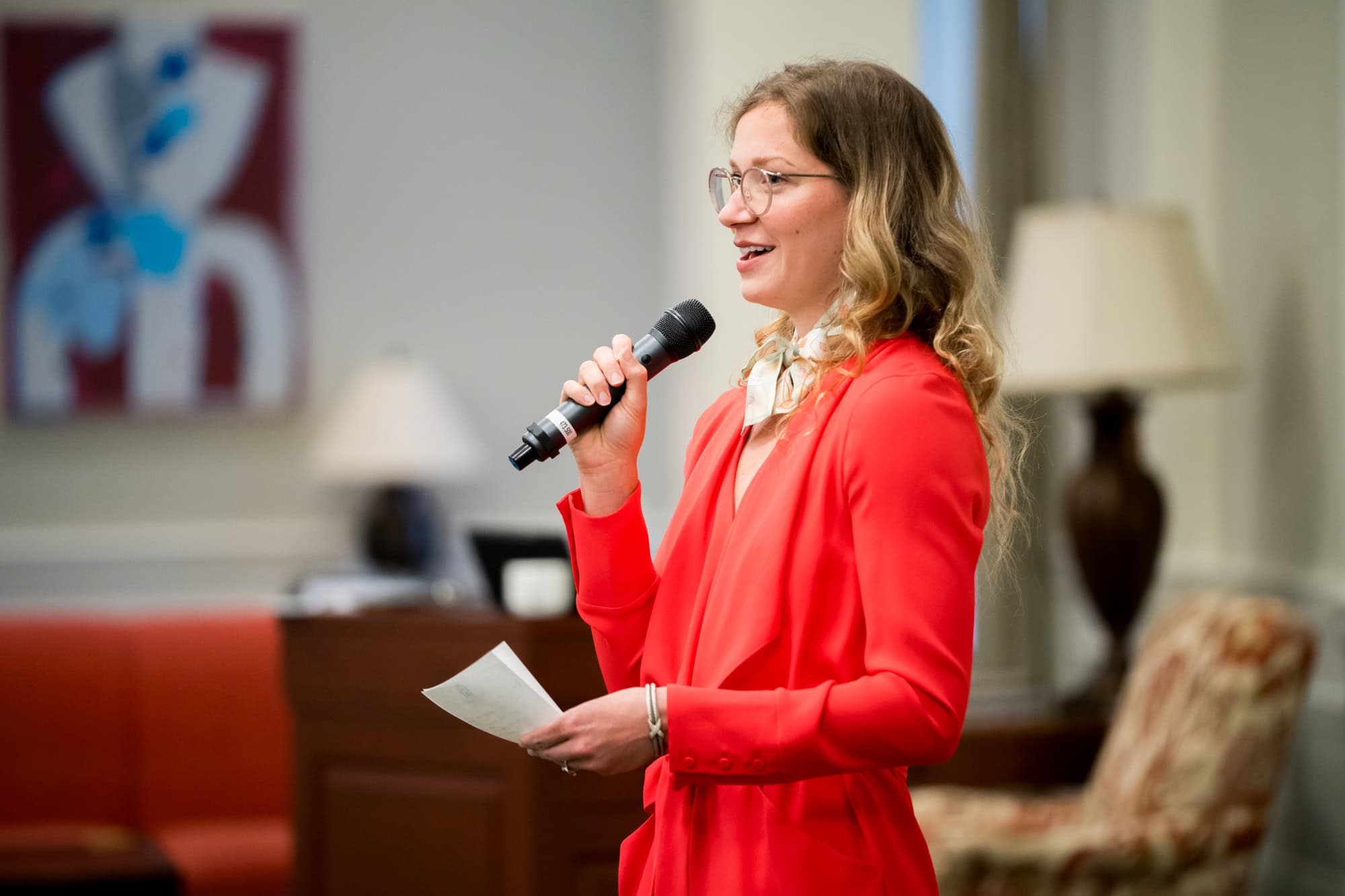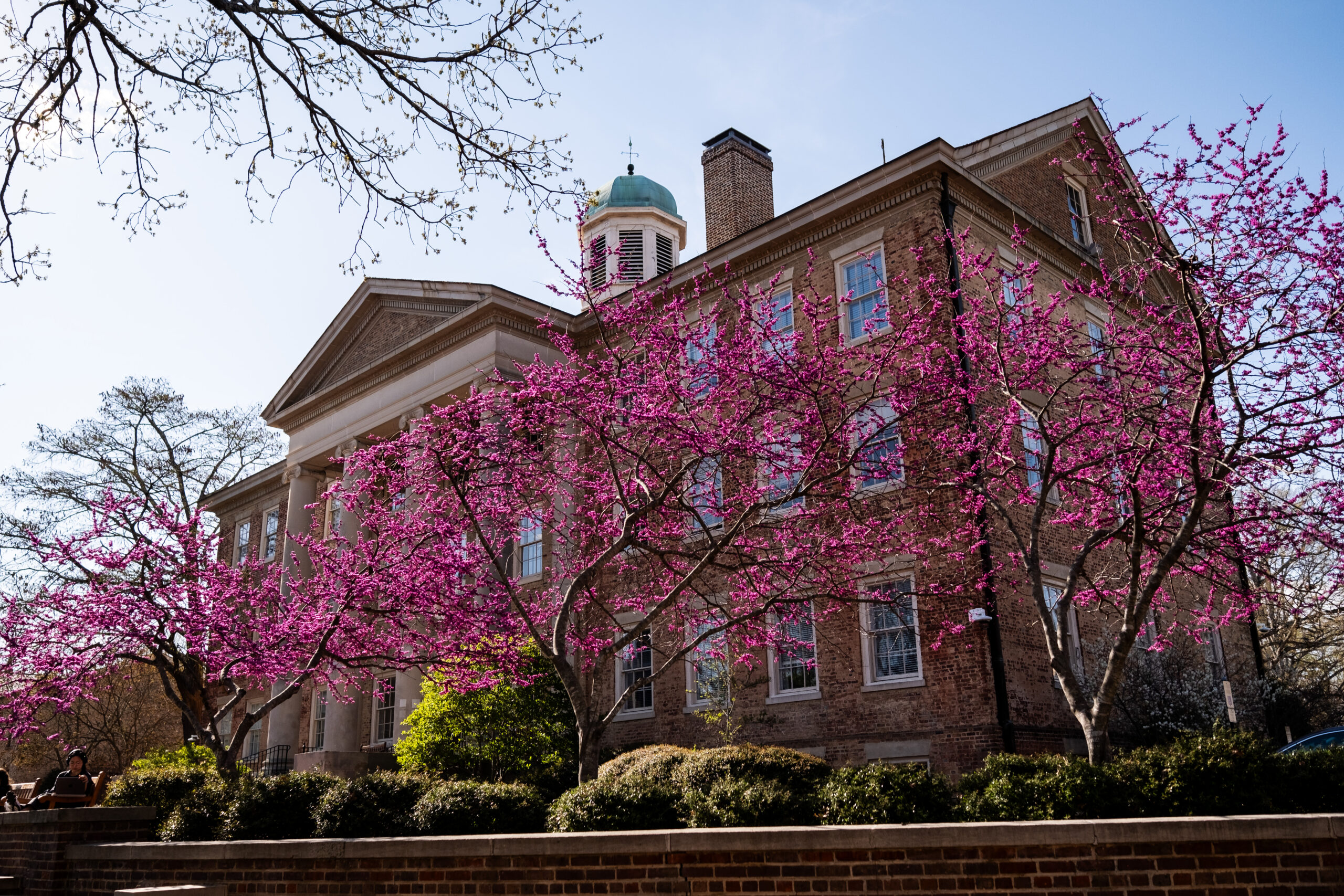
North Rowan High School was recognized as an Apple Distinguished School in the fall of 2019.
Written by Sarah O’Carroll, Morehead-Cain Foundation
When North Carolina Governor Roy Cooper ’79 issued an executive order for all K-12 public schools to close in mid-March due to the expanding threat of the coronavirus, North Rowan High School in the town of Spencer was ready.
For example, to help make digital learning achievable from home, each and every one of the public school’s roughly 600 students is armed with either an iPad or a MacBook.
Morehead-Cain spoke with Principal Meredith Lentz Williams ’05 on Day 2 of online classes, when school buses had already delivered more than 550 meals to families across the Rowan-Salisbury school district. Approximately three out of every five students in the district rely on free or reduced lunch, Meredith said.
Years of planning and collaboration with the governor’s leadership of the North Carolina Department of Public Instruction in tackling food insecurity have paid off during the COVID-19 pandemic, making the larger transition much less overwhelming than it could’ve been.
“This crisis has really given us and our community an opportunity to see the massive role that schools play in taking care of students well beyond just instruction,” said Meredith, who joined North Rowan, her alma mater, as principal in 2016.
Beyond meeting basic needs like food and hardware, including plenty of Apple chargers, the school has prioritized providing training and support for teachers and counselors to help keep students safe while at home and on track with their college and scholarship applications.
“We’ve been keeping our teachers, who are truly on the front lines when it comes to interacting with students, informed on how to watch for signs of self-harm, domestic violence, or other dangers,” she said.
For the past three years, the school has instituted periodic “eLearning days” for students to practice working remotely and to give teachers professional development opportunities. While inclement weather situations were a more predictable scenario for the utility of these eLearning days, she said they have proved important during the current health crisis, as well.
With a reopen date still uncertain for North Carolina’s schools, Meredith said that North Rowan will continue to take it one day at a time, seeking to keep students learning, creating, and collaborating with one another from afar.
“I feel confident that the structures we’ve put in place will take care of our students for the remainder of this crisis,” she said. “Our students aren’t missing a beat.”
Innovative design, innovative thinking
If you were to walk into North Rowan’s (now empty) building, you wouldn’t see traditional classroom settings with rows upon rows of desks. Through Meredith’s leadership and a partnership with the furniture company OFS, the school implemented “design labs” where students can work either independently or collaboratively using technology.
With co-working spaces that more closely “mimic those that students will likely enter following their graduation,” the hope is that students can more easily adapt to unfamiliar working environments just as they’ve had to do amidst the coronavirus outbreak.
While the thought of continuing online classes through an extended period of time is a bit daunting, she said she looks forward to seeing the creative solutions that come out of this difficult situation, at both state and national levels.
“It’s challenges like these where our best thinking can happen,” she said. “I’m excited to see how all of these schools approached teaching outside of a building because we’re going to stumble on some really innovative ideas in the process that will change education as we know it.”
During her time at Carolina, Meredith spent summers studying education models in Zambia and Tanzania, as well as in San Francisco through the Knowledge is Power Program (KIPP), a nonprofit network of public charter schools. She also taught English in Thailand.
She said these experiences through the Foundation’s Summer Enrichment Program taught her how to be innovative without being restrained by resources.
“I was able to be exposed to different educational systems and the cultural values that surround them, and I think that’s a big part of the reason that I’m able to think outside of the box today,” Meredith said.
The Spencer native graduated with a degree in biology and was nominated by North Rowan High School for the Morehead-Cain Scholarship in 2000.


